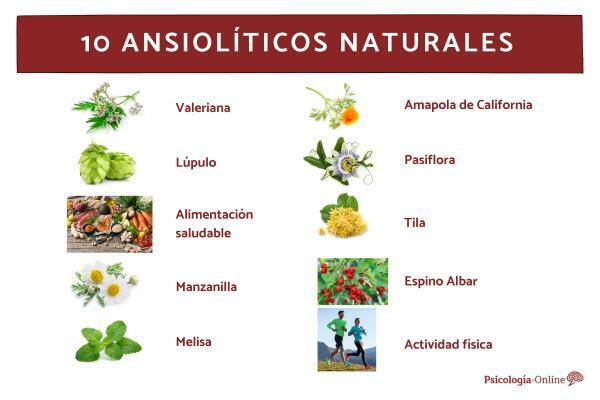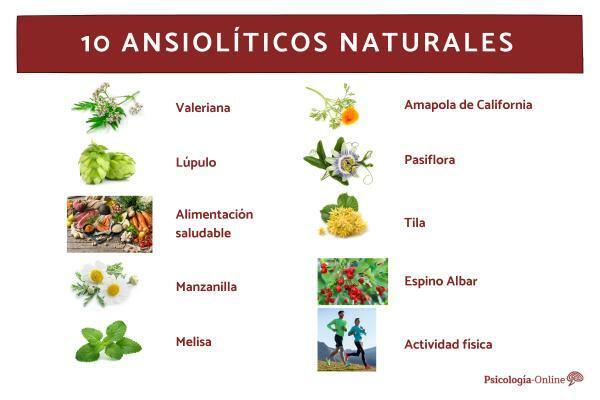Anxiety is a very frequent activation response of our organism in our society. It has a set of symptoms that generate an incapacitation to be able to continue with our day to day in the usual way. The drugs most used for its treatment are benzodiazepines and antidepressants, necessary to reduce the symptoms presented.
However, on many occasions, anxiety occurs without the person suffering from an anxiety disorder, as it appears as a normal reaction to a certain circumstance. Given this, the use of natural anxiolytics can be a very good option, to help reduce the levels of anxiety that can appear after a bad day, when receiving bad news, for stress…
Vitae is a brand of natural food supplements that has a variety of products to effectively manage the anxiety / stress during the day, as well as the relaxation / insomnia in the evening. Its formulas based on valerian, passionflower, California poppy, lemon balm, magnesium and melatonin allow you to recover your essence and combat fears and worries without side effects on the organism. Among all of them, we highlight
Therefore, before moderate and occasional anxiety, it is advisable to use natural anxiolytics which are natural relaxants for anxiety, but we must bear in mind that psychotropic drugs are necessary on many occasions, when a anxiety disorder.
Now they present 8 powerful natural anxiolytics, over-the-counter anxiety remedies.
1. Valerian
Valerian is a plant of the Valerianaceae family, considered a potent natural anxiolytic, of which its root is used to obtain the sedative effect. Therefore, it is considered a natural remedy for anxiety. In addition to providing sedation, it induces a state of relaxation, contributes to promoting sleep, helps lower blood pressure and maintains certain seizure effects. Thanks to its properties, valerian tends to be used as natural tranquilizer, in circumstances of general nervousness, restlessness, sleep disturbances, gastrointestinal pain, anxiety, stress and tension.
Is its consumption dangerous? Valerian lacks toxicity if reasonable doses are takenHowever, its prolonged administration can create dependency. In addition, its excessive consumption can cause flatulence and gastrointestinal discomfort. Are you looking for natural anxiolytics for pregnant women? Valerian is not, as it is contraindicated in pregnancy and breastfeeding.
2. California poppy
The poppy contains hypnotic-relaxing properties and its action is soft, therefore, it tends to be used for insomnia treatment in children and the elderly. Its functions are the mild anxiety reduction, helps control excessive nerves and reduces irritability and stress. In addition to reducing anxiety symptoms, it is useful in treating coughs and sore throats, headaches, and muscle cramps.
Poppy lacks toxicity and, unlike valerian, its prolonged consumption does not show dependence. However, due to lack of studies, it is recommended not to consume it during pregnancy and lactation or during treatment with antidepressants. It is also not recommended for people with a blood pressure disorder or taking drugs that alter blood pressure.
3. Balm
Another of the relaxing herbs that cannot be missing from this list of natural tranquilizers is the Melissa officinalis. Melissa, like valerian, produces a sedative effect And it has hypnotic properties, which is why it is considered one of the natural remedies for anxiety. Frequently, it is used in the face of heightened feelings of distress or in digestive problems, since it is intestinal regulator.
4. Passionflower
Does passionflower work for anxiety? Passionflower is commonly known as the passion flower and, for the anxiety treatment, is suitable for its relaxing effect, becoming compared to Valium, but it does not present the side effects of this. Therefore, if you are looking for strong natural anxiolytics, passionflower is among them. It is indicated as a tranquilizer, specifically for the treatment of insomnia, palpitations and other symptoms of stress and anxiety.
If you are looking natural anxiolytics for children, you should know that passionflower is an option. Its consumption is recommended in children older than two years.
The passion flower has no toxicity, as long as the quantities are controlled. Excessive consumption can cause nausea and vomiting. It is contraindicated in pregnancy and lactation.
5. Linden
The linden has relaxing properties and helps reduce tension and insomnia. Like the other plants, it is a powerful natural anxiolytic that also works as a muscle relaxant. His performance does not focus solely on the nervous system, also acts on the liver, producing an increase in the detoxifying function, which contributes to muscle and nerve relaxation. Therefore, linden is a natural tranquilizer that helps in states of distress, anxiety and excitement.
It should be noted that it cannot be administered simultaneously with anticoagulant drugs, nor in people suffering from a blood clotting disorder. On the other hand, it must be consumed for a maximum of thirty days in a row and its excess can cause a paradoxical effect, producing tachycardia or insomnia.
6. Hop
Hops tend to be used in nervous disorders associated with menopause, due to its incidence of estrogens. In addition, it maintains hypnotic-sedative and depressant properties. It is recommended before states of anxiety and restlessness, as well as excess excitability and insomnia of nervous origin.
Like many natural anxiolytics, it is contraindicated during pregnancy and lactation and, specifically, in cases of hyperestrogenesis, that is, having high levels of estrogens.
7. Chamomile
Another option that could not be missing in this list of natural remedies for anxiety. Chamomile produces a mild calming action and it is used in digestive disorders of nervous origin and in abdominal pain. Its main advantage is that can be administered to a baby. So if you are looking for natural anxiolytics for children, chamomile is ideal.
8. Hawthorn
Hawthorn is a plant that has a calming effect greater than that of valerian and linden and, therefore, it is a very powerful natural anxiolytic. However, it is often used in combination with valerian and passion flower, in order to enhance its effects, without causing decompensation.
Its use is concentrated in decrease stress, anxiety and other nervous symptoms, which are related to the cardiovascular system. Its active principles are used in many drugs for the treatment of heart disorders, so the recommended dose should not be exceeded. Its prolonged intake or consumption in high doses can cause liver toxicity, as well as respiratory and cardiac disorders.
9. Natural anxiolytic foods
A healthy and balanced diet will also help reduce anxiety. The diet should include tryptophan, fiber, carbohydrates, and healthy fats. A varied diet, based on foods such as fruits, vegetables, legumes, meats, eggs, fish, shellfish and dairy helps the proper development of brain functions. It is convenient to avoid the consumption of added sugar, stimulants (such as caffeine, theine) and ultra-processed in general. You will find more information in the article: foods to combat anxiety.
10. Physical activity
Finally, we could not leave ourselves to the best natural anxiolytic: physical activity. Practicing moderate physical exercise daily and adapted to the possibilities of each person is the best way to regulate anxiety without medication. Without side effects and with many benefits, it is considered the natural tranquilizer par excellence.
The release of various hormones, plus personal satisfaction, reduce anxiety levels. Regular physical activity lowers blood pressure and heart rate in stressful situations.
Physical activity improves the quality of sleep because it increases melatonin levels, improves mood, due to the effect of beta endorphins, and prevents stress.



